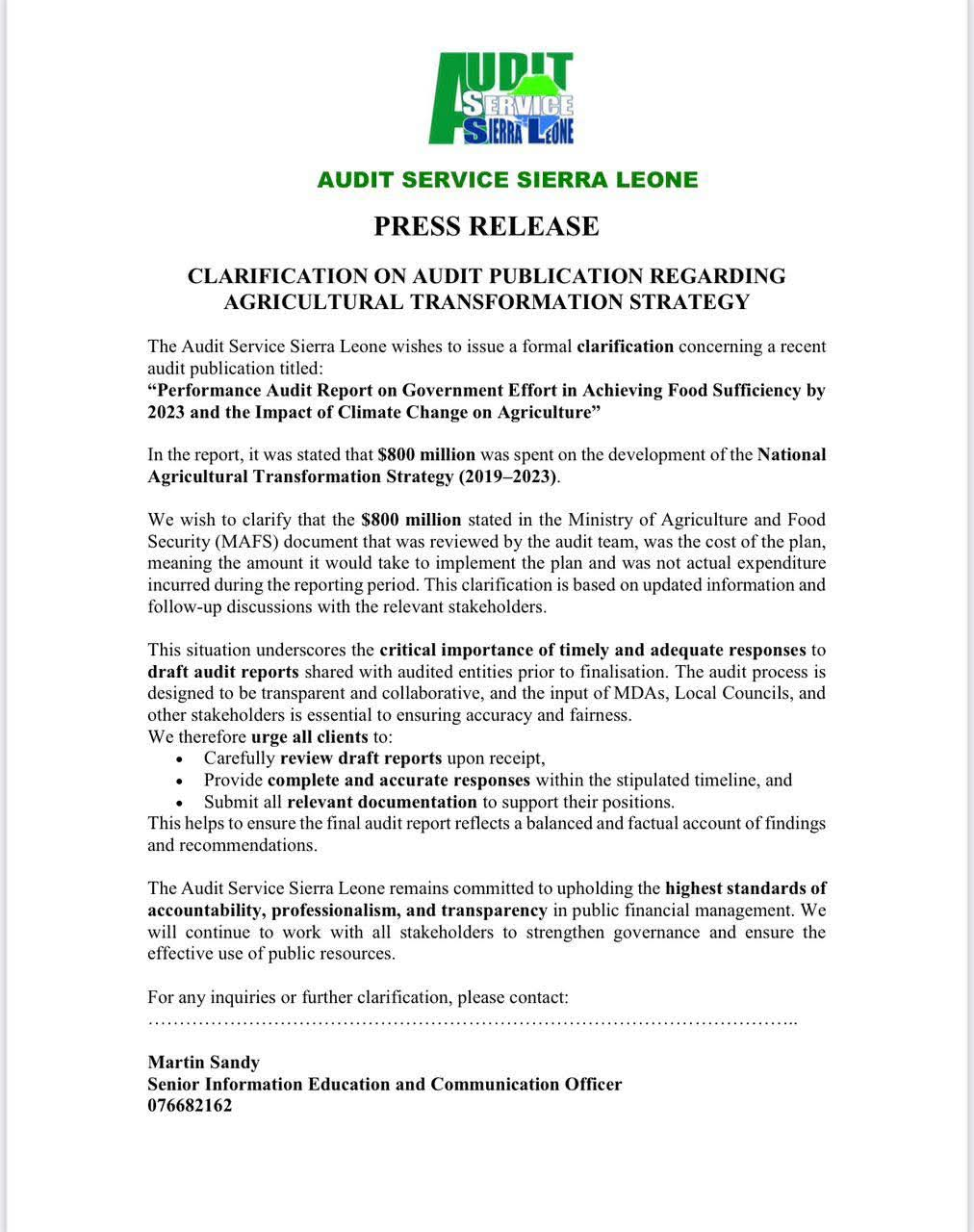The Audit Service Sierra Leone (ASSL) has issued a formal clarification regarding a figure cited in its recent audit report on the country’s agricultural sector, particularly the government’s efforts to achieve food sufficiency and the impact of climate change.
In a press release issued Thursday 12th June 2025, ASSL addressed public interpretation of a statement in its “Performance Audit Report on Government Effort in Achieving Food Sufficiency by 2023 and the Impact of Climate Change on Agriculture.” The report had indicated that $800 million was spent on the development of the National Agricultural Transformation Strategy (2019–2023) — a figure that has since raised questions.
According to the ASSL, the $800 million mentioned in the report was not actual expenditure during the audit period. Instead, it was the estimated cost of implementing the strategy, as stated in a Ministry of Agriculture and Food Security (MAFS) document reviewed by the audit team.
“This clarification is based on updated information and follow-up discussions with relevant stakeholders,” the statement noted.
The Audit Service emphasized that the misunderstanding underscores the importance of timely and comprehensive responses to draft audit reports sent to government ministries, departments, agencies (MDAs), and local councils before the final versions are published. These responses, it stressed, are critical to ensuring accuracy, balance, and fairness in the final reports.
“We urge all clients to carefully review draft reports upon receipt, provide complete and accurate responses within the stipulated timeline, and submit all relevant documentation to support their positions,” ASSL stated.
The Audit Service reaffirmed its commitment to professionalism, transparency, and accountability in public financial management and vowed to continue engaging stakeholders to promote effective governance and responsible use of public resources.
The National Agricultural Transformation Strategy was a flagship initiative aimed at boosting food production, strengthening agricultural value chains, and building climate resilience in Sierra Leone’s farming communities.












